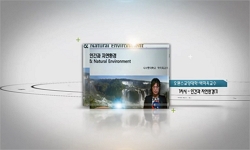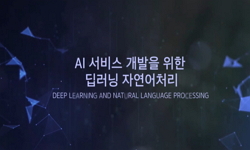유길준은 주자학적 ‘자연(自然)’ 관념에 입각해 근대 국가의 ‘자연법’과 ‘자연권’ 개념을 수용했다. 그러나 그의 해석은 방국의 권리 측면에서는 ‘자율’을 강조하고, 인민의 권리 ...
http://chineseinput.net/에서 pinyin(병음)방식으로 중국어를 변환할 수 있습니다.
변환된 중국어를 복사하여 사용하시면 됩니다.
- 中文 을 입력하시려면 zhongwen을 입력하시고 space를누르시면됩니다.
- 北京 을 입력하시려면 beijing을 입력하시고 space를 누르시면 됩니다.
https://www.riss.kr/link?id=A105602042
- 저자
- 발행기관
- 학술지명
- 권호사항
-
발행연도
2018
-
작성언어
Korean
- 주제어
-
등재정보
KCI등재
-
자료형태
학술저널
-
수록면
137-165(29쪽)
- DOI식별코드
- 제공처
-
0
상세조회 -
0
다운로드
부가정보
국문 초록 (Abstract)
유길준은 주자학적 ‘자연(自然)’ 관념에 입각해 근대 국가의 ‘자연법’과 ‘자연권’ 개념을 수용했다. 그러나 그의 해석은 방국의 권리 측면에서는 ‘자율’을 강조하고, 인민의 권리 측면에서는 ‘복종’을 강조하는 모순을 드러냈다. 주자학적 ‘자연’ 개념 그 자체로부터 민권 개념을 도출할 수 있기 때문에, 그와 같은 모순이 단지 전통의 한계에서 비롯된 것은 아니다. 모순의 근본적 이유는 그가 체제 중심부의 권위를 재생산하고자 하는 관료의 위치에서 사고했기 때문이다. 유길준에게서 그 모순은 주자학에 대한 교조적 해석 및 그에 상응하는 국가주의 사상의 결합으로 나타났다. 외래 사상의 수용은 수용자의 전통에 의해 굴절되기 마련이지만, 내부의 사상적 유산 역시 외래의 새로운 요소에 의해 굴절되기 마련이다. 이중의 굴절 과정, 그 길의 끝에서 그가 도달한 곳은 국가주의였고, 그 핵심은 사회유기체설과 유학적 종법논리의 착종으로 이루어진 충효일치의 사상이었다. 결국 주자학과 서구의 자연을 결합하려 했던 그의 근대화 여정은 일본식 근대화 논리에 대한 모방으로 끝나고 말았다.
다국어 초록 (Multilingual Abstract)
Yu Kil-chun accommodated the western modern concept of ‘natural law’ and ‘natural rights’ on the grounds of his neo-Confucian understanding of ‘nature (自然)’. His interpretation, however, emphasized national autonomy in terms of soverei...
Yu Kil-chun accommodated the western modern concept of ‘natural law’ and ‘natural rights’ on the grounds of his neo-Confucian understanding of ‘nature (自然)’. His interpretation, however, emphasized national autonomy in terms of sovereign state whereas stressed people’s obedience in terms of civil rights. Such inconsistencies do not arise solely from the limitation of tradition, in the sense that the neo-Confucian concept of ‘nature’ itself can derive the concept of civil rights. The fundamental reason for the discrepancy was his political position that reproduced the interests and authority of ruling class. The contradiction of Yu was the combination of his dogmatic interpretation of neo-Confucianism and its correspondence to the nationalist idea. As foreign ideas can be refracted by indigenous tradition, native philosophical legacy also can be inflected by new imported foreign factors. At the end of the dual process of refraction, Yu reached the road of nationalism because the core value of it was the mixture of the social organism theory and the clan regulation ethic, the idea of loyalty and consistent filial piety. His journey to combine neo-Confucianism and the western concept of nature ended with the imitation of Japanese modernization.
목차 (Table of Contents)
- 국문요약
- Ⅰ. 서론
- Ⅱ. 자연과 국가에 대한 주자학적 재해석
- Ⅲ. 공사(公私)의 문제와 정체(政體) 개혁
- Ⅳ. 『노동야학독본』과 동아시아적 국가주의
- 국문요약
- Ⅰ. 서론
- Ⅱ. 자연과 국가에 대한 주자학적 재해석
- Ⅲ. 공사(公私)의 문제와 정체(政體) 개혁
- Ⅳ. 『노동야학독본』과 동아시아적 국가주의
- Ⅴ. 결론
- 참고문헌
- Abstract
동일학술지(권/호) 다른 논문
-
- 한국동양정치사상사학회
- 전세영(Jeon, Sae Young)
- 2018
- KCI등재
-
- 한국동양정치사상사학회
- 안광호(An, Gwang Ho)
- 2018
- KCI등재
-
- 한국동양정치사상사학회
- 유미림(Yoo, Mi Rim)
- 2018
- KCI등재
-
- 한국동양정치사상사학회
- 송휘영(Song, Hwi Young)
- 2018
- KCI등재





 DBpia
DBpia






